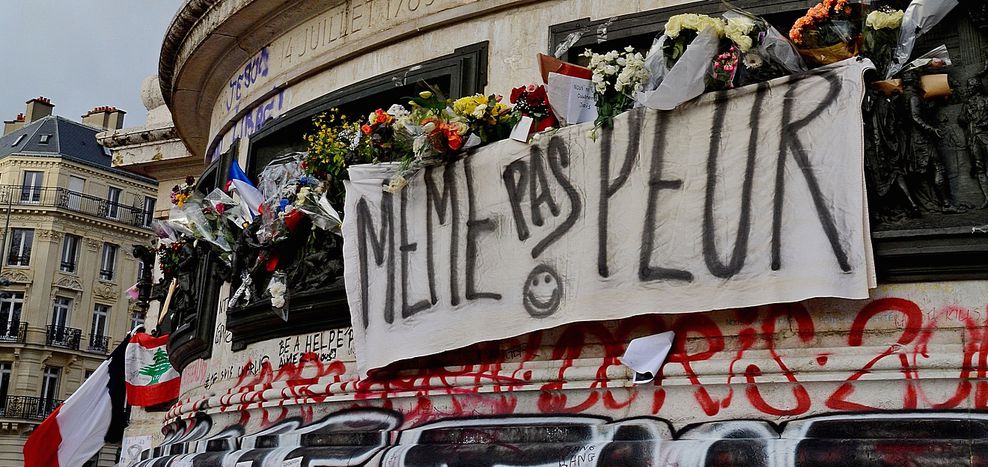
Terrorist attacks: Fear is a bad mentor
Published on
Translation by:
Lucy ChadwickParis, Brussels, Istanbul, Ankara – the list of attacks in the last few months which have left their mark. We have become nervous, insecure, afraid. And yet we should resist this fear, because it is the real weapon used by those who spread this terror.
A few days after the terrorist attacks in Brussels in March 2016, I was speaking with my friend on the phone. She’s in her early 20s, worldly, and has studied abroad. When right-wing-extremists announced a demonstration in her town, we both took part in a counter demonstration with colourfully painted banners promoting diversity and tolerance. The Brussels attacks inevitably came up during our conversation. She sounded down; she said she didn’t feel safe when she took the train, and an uncomfortable feeling crept over her when she came across groups of young Arabic men. Of course, she said she knew that such feelings weren’t right, and she had tried to supress these feelings – with moderate success. At first, I didn’t know what to say. On the one hand, I study in Denmark, where due to the strict immigration policies a lot less migrants live there than in Germany – so I’d have to look pretty hard to stumble across a group of young, Arabic men. On the other hand, I can understand these feelings of unease, even if I don’t feel them in the same way. In any case she is by no means an exception. A lot of my friends and acquaintances have expressed the same concerns about safety. Terror slowly but surely reaches its perfidious goal: it spreads fear. Fear which slowly but surely threatens to paralyse us.
A few weeks later I was sat in a cosy bar in Aarhus, Denmark with some of my fellow students. We were talking about God and the world, and I told them about my friend and her uneasiness. And then I wanted to know: what about them? Were they afraid? No, not in Aarhus. Brief silence. But a girl from Berlin said that when she was back home during the Easter holidays, she briefly felt a little bit queasy on the underground train. For the first time ever.
This insecurity, it may well just be a temporary phenomenon, which is momentarily reflective of my surroundings. But on the contrary we can be certain, that as long as Europe continues to be hit by terrorist attacks at regular intervals, this mistrust and fear of people isn’t going to disappear. According to German broadcaster ARD, the majority of Germans are in favour of harsh, long-term safety measures, which is completely understandable following the considerable criticisms facing Belgian security agencies after the attacks in March. But generally it still holds: fear is a bad mentor.
Fear can be important, certainly – it makes us take the necessary precautions in difficult situations and makes us react quickly. But if we let ourselves be dominated by it, it deprives us of our ability to think rationally. In Germany, well in the whole of Europe, the chance of being killed in a terrorist attack is significantly slimmer than many think – the Swiss journalist Constantin Seibt wrote that in Germany alone, more than 500 people per year die from fish bones. But no global panic over fish bones has broken out because of this. And this is exactly how we should deal with terrorism; we should keep a cool head. Psychologist Borwin Bandelow also expressed this idea during an interview with the German newspaper ZEIT online: ‘It is better to go out regardless; otherwise you will just worry yourself more’. So- still go to public viewings of the Football World Cup, still travel by plane, laugh and have fun despite all this. And then we will mock the terrorists' most dangerous weapon: fear.
Translated from Terroranschläge: Angst ist ein schlechter Ratgeber



